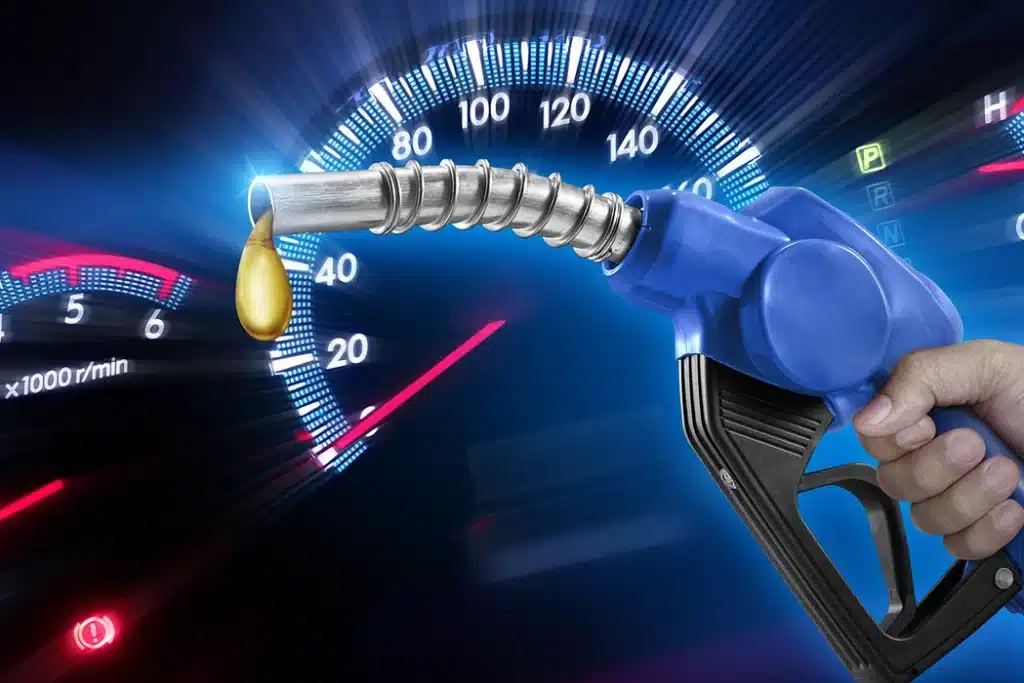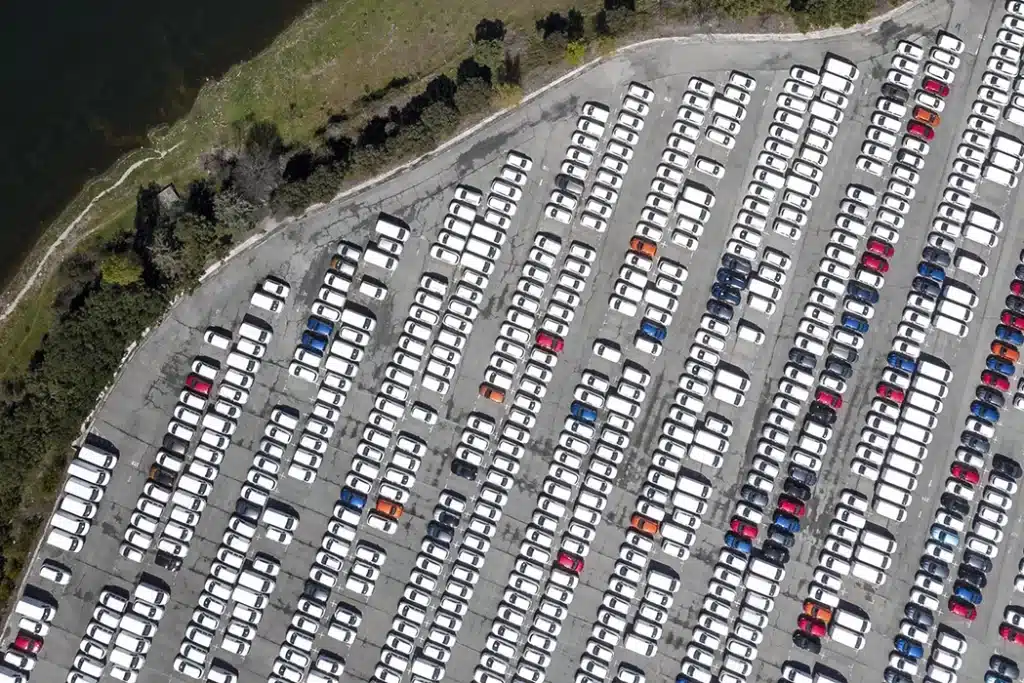The advent of 5G technology heralds a new era in digital communication, characterized by unprecedented speed, reduced latency, and expanded bandwidth. These advancements promise to revolutionize various industries, with fleet management at the forefront of this transformation.
5G technology is not just a step up from its predecessor, 4G; it’s a giant leap forward, offering service revenues projected to reach $315 billion by 2023. This growth is primarily driven by substantial upgrades to 5G networks, signaling a significant shift in the telecommunications landscape.
Fleet management, the coordinated administration and operations of a company’s vehicle fleet, faces a myriad of challenges in the modern world. The industry is grappling with issues like vehicle shortages, which severely impacted new vehicle sales in 2022 and continue to pose a problem in 2023.
The integration of electric vehicles (EVs) has also become a central concern. After years on the periphery, EVs are now at the heart of the industry, placing immense pressure on fleet managers to adopt these vehicles into their operations. Spiraling inflation, with rates 8% higher in 2022 compared to 2021, adds another layer of complexity, affecting the industry’s economic landscape. Moreover, there’s a need to adapt to the “new normal” post-COVID-19, requiring a shift in expectations and operations.
5G technology stands as a beacon of hope amidst these challenges. Its capabilities are not just incremental improvements but are transformative in nature. This article explores 5G as a pivotal player in redefining fleet management, offering solutions to current challenges and unlocking new potentials for efficiency, safety, and sustainability in fleet operations.
The integration of 5G into fleet management systems is poised to usher in a new golden era for the industry, marked by enhanced connectivity, real-time data processing, and innovative operational strategies.
Understanding 5G Technology
5G technology stands out for its exceptional speed, reduced latency, and increased bandwidth compared to its predecessors. Speed, the most touted feature, allows 5G networks to transmit data at rates several times faster than 4G. This speed translates into downloading and uploading data in a fraction of the time previously required.
Latency, or the time it takes for data to travel from its source to its destination, is significantly reduced in 5G networks, enhancing real-time data transmission and communication. Bandwidth, referring to the range of frequencies used to transmit data, is substantially wider in 5G networks, allowing more devices to connect simultaneously without congestion.
Comparison with Previous Generations (4G and 3G)
In comparison to its predecessors, 5G represents a significant leap forward. While 4G introduced faster internet speeds and more reliable network connections compared to 3G, 5G takes these improvements to a new level. 3G networks offered the basics of mobile data and internet connectivity, and 4G enhanced these capabilities, enabling the rise of data-intensive applications like streaming services.
5G, however, is set to transform the way we interact with technology, supporting advanced applications such as autonomous vehicles, smart cities, and augmented reality.
Potential Benefits and Limitations of 5G Technology
5G’s high speed and low latency enable real-time data processing and analytics, crucial for tasks like fleet management, where timely information is critical. The increased bandwidth allows for a more significant number of devices to be connected, paving the way for the Internet of Things (IoT) and smart infrastructure.
However, there are limitations and challenges. The deployment of 5G technology requires substantial investment in infrastructure, such as new cell towers and updated equipment. Coverage can be an issue, as 5G currently operates on high-frequency bands with shorter ranges. Additionally, there are concerns about the long-term health impacts of 5G radiation, though current research suggests it is safe within international guidelines.
The Current State of Fleet Management
Fleet management is the process of organizing, tracking, and maintaining a fleet of vehicles in a way that maximizes efficiency and minimizes costs. This encompasses a wide range of activities, including vehicle financing, maintenance, telematics (tracking and diagnostics), driver management, speed management, fuel management, and health and safety management.
Key components of fleet management involve ensuring the overall safety of the fleet, maintaining operational efficiency, and optimizing the lifecycle of each vehicle.
Challenges Faced in Current Fleet Management Systems
Current fleet management systems encounter various challenges that can impact their efficiency and effectiveness. Connectivity issues, often due to inconsistent network coverage, can lead to gaps in tracking and data collection. Slow data processing speeds can hinder real-time decision-making, which is crucial in fleet operations.
Other challenges include managing the costs of fleet operations, adhering to regulatory compliance, ensuring driver safety, and mitigating environmental impact. These challenges require fleet managers to constantly adapt and seek innovative solutions.
The Role of Existing Technologies in Fleet Management
Existing technologies play a pivotal role in addressing these challenges. GPS tracking systems, for instance, are essential for real-time vehicle tracking and route optimization. Telematics technology provides valuable insights into vehicle performance, driver behavior, and fuel efficiency.
Advanced software solutions offer fleet managers tools for scheduling maintenance, managing routes, and analyzing operational data. Despite these technological advancements, the rapidly evolving nature of fleet management demands more advanced solutions, particularly in connectivity and data processing, areas where 5G technology could make a significant impact.
5G and Fleet Management: A New Era
Enhanced Real-time Data Transmission: 5G’s groundbreaking low latency and high speed are set to revolutionize real-time data transmission in fleet management.
The near-instantaneous communication enabled by 5G means that fleet managers can receive and analyze data from vehicles in real-time, allowing for more timely and informed decision-making. This instant data transmission is crucial for tasks such as monitoring vehicle health, driver performance, and ensuring timely deliveries.
Improved Fleet Tracking and Management: The impact of 5G on fleet tracking and management is profound. Enhanced GPS tracking accuracy and reliability, facilitated by 5G, leads to more efficient route optimization, reducing fuel consumption and travel times.
Additionally, 5G’s high-speed data transfer enables more sophisticated vehicle diagnostics, allowing for proactive maintenance and reducing the likelihood of breakdowns. This level of detailed, real-time tracking and management was not feasible with older network technologies.
Enhanced Safety and Efficiency: 5G technology can significantly enhance safety protocols in fleet management. With its ability to support advanced driver-assistance systems (ADAS) and potentially autonomous driving in the future, 5G can contribute to reducing accidents and improving road safety.
Furthermore, the efficiency of fleet operations is expected to see a marked improvement. The speed and accuracy of 5G enable better coordination, quicker responses to changing conditions, and overall more streamlined fleet operations. This not only boosts productivity but also contributes to a more sustainable operation by reducing unnecessary fuel consumption and emissions.
Case Studies and Real-World Applications
UPS: Time Tracking and Route Optimization
- UPS has harnessed 5G technology for real-time tracking of delivery trucks, ensuring central operations are always informed about the status and location of each vehicle.
- The technology has enabled UPS to efficiently plan delivery routes, taking into account factors like traffic conditions, road closures, and delivery priorities.
- The benefits observed include time savings, reduced fuel consumption, cost savings, and a smaller carbon footprint.
FedEx: Leading the Way in Autonomous Trucking
- FedEx is actively shaping the future by testing self-driving trucks using 5G technology in California.
- These tests are part of a broader vision to expand the use of autonomous trucks in logistics, potentially making them a standard in the industry.
- Enhanced safety and efficiency are key outcomes, with 5G’s low latency enabling autonomous vehicles to make safe and efficient delivery decisions.
Volvo: Revolutionizing Truck Diagnostics
- Volvo has gone beyond basic telematics by equipping their trucks with 5G connectivity, allowing real-time data transmission to technicians.
- This capability has enabled remote repairs and diagnostics, often resolving issues without the need for physical inspections.
- The approach focuses on preventative maintenance, reducing downtime and proactively addressing problems early to prevent future issues.
These case studies demonstrate the profound impact of 5G technology in fleet management. Key benefits include enhanced real-time tracking, improved route optimization, increased safety, efficiency in operations, and a move towards more sustainable practices. The ability to address issues remotely and in real time has led to significant improvements in fleet maintenance and management.
Predictions for Future Applications and Developments
The current trends indicate that more fleets will embrace 5G technology in the near future, translating to positive outcomes across various industries. As 5G becomes more accessible, there is an expected expansion of 5G-compatible hardware for fleets and fleet management teams, further enhancing the capabilities and efficiency of fleet operations. The integration of 5G in fleet management is likely to continue evolving, with potential developments in areas such as enhanced autonomous driving capabilities, further improvements in safety protocols, and even greater efficiency in fleet operations.
Challenges and Considerations in Implementing 5G in Fleet Management
Integrating 5G into existing fleet systems poses several technical and logistical challenges. One major hurdle is ensuring compatibility between 5G technology and existing fleet management software and hardware.
Upgrading to 5G may require significant overhauls of current systems, including the installation of new on-board units and sensors capable of handling 5G speeds and data loads. Additionally, the limited coverage of 5G networks, especially in remote or rural areas, can be a logistical challenge, potentially leading to inconsistent connectivity for fleets operating outside urban centers.
Cost, Infrastructure, and Training
The cost of implementing 5G in fleet management can be substantial. It involves not only the direct expenses of new hardware and software but also the indirect costs associated with infrastructure changes.
Building a robust 5G infrastructure, such as installing new cell towers and upgrading network capabilities, requires significant investment. Moreover, training staff and drivers to effectively utilize the new technology is essential, adding to the overall cost and complexity of the transition.
Security Concerns and Data Privacy Issues
Security and data privacy are critical concerns in the adoption of 5G in fleet management. The increased connectivity and data transmission rates raise the stakes for cybersecurity. Protecting sensitive data, such as vehicle locations, driver information, and operational details, becomes more challenging as the volume and speed of data exchange grow.
Ensuring robust encryption and secure data handling protocols is paramount to safeguard against potential breaches. Compliance with data privacy regulations and laws is also essential to maintain trust and legal integrity in fleet operations.
The Future of Fleet Management with 5G
As 5G technology continues to evolve, its influence on fleet management is expected to grow exponentially.
The future points towards more widespread adoption of 5G, leading to even greater efficiencies in real-time data processing, improved fleet tracking, and enhanced communication between vehicles and fleet managers.
The integration of 5G is likely to drive further innovations in fleet management, making operations faster, more reliable, and more efficient.
Potential for Integration with Other Emerging Technologies
The potential for 5G to integrate with other emerging technologies, such as Artificial Intelligence (AI) and the Internet of Things (IoT), is immense. AI can leverage the high-speed data processing of 5G to provide more advanced analytics and predictive insights, enhancing decision-making processes in fleet management. Similarly, IoT devices can utilize 5G’s enhanced connectivity to monitor and transmit data from vehicles in real-time, leading to smarter, more interconnected fleets.
Final Thoughts
5G technology marks a significant milestone in the evolution of fleet management. We’ve highlighted how 5G’s superior speed, reduced latency, and increased bandwidth can revolutionize fleet operations, from enhanced real-time data transmission to improved fleet tracking and management, and heightened safety and efficiency.
While challenges in implementation exist, the integration of 5G with emerging technologies like AI and IoT holds immense potential for the future of fleet management. As 5G technology continues to evolve, it promises to redefine the landscape of fleet management, making it more efficient, safe, and responsive.
If you’re keen to explore how 5G can transform your fleet management strategies and to understand the specific benefits and applications for your operations, contact a ZenduiT specialist for more information.










































